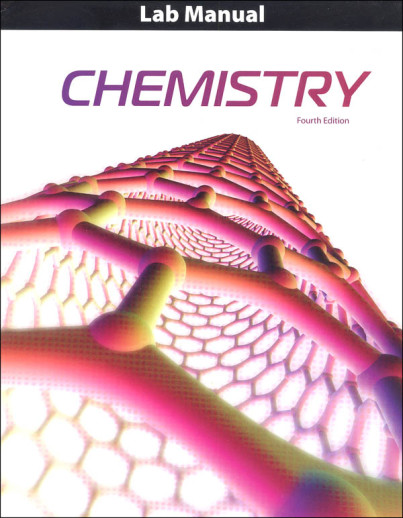We use cookies to make your experience better. To comply with the new e-Privacy directive, we need to ask for your consent to set the cookies. Learn more.
Chemistry Student Lab Manual 4th Edition
Items listed in this section tend to be complete science programs with a teacher and student component, requiring few supplements besides science supplies.
With so many secular materials infused with evolution, it's sometimes difficult to find solid science materials that are based on Creationism. Bob Jones Science is thoroughly Christian, including many evidences and support of Creationism and many "holes" in the theory of evolution, particularly at the upper grade levels. Vital to the program are the student activities, or labs. The scientific method is emphasized as children participate on hands-on activities and experiments throughout the curriculum. The junior high and high school levels are full-blown laboratory science courses, complete with a separate lab manual. Experiments are excellent, but some of them require unique materials or are difficult to do in a home environment. The revised texts are more home-friendly, though, and Bob Jones also offers a Lab Manual Supplement for home schoolers, containing tips for doing lab activities in smaller groups. We have used many of these upper level texts in our home school. We also have accumulated a wealth of laboratory equipment and supplies over the years, which has made the lab work easier. I have sometimes substituted labs from Experiences in Biology and Experiences in Chemistry (from Castle Heights - see index) where it's been too difficult to use a particular lab. Bob Jones has made it easy to obtain lab materials and chemicals (you can order almost anything you need for their courses on the Science Lab Materials Order Form), but some labs are still pretty complex for a home environment, requiring a lot of set-up and preparation time. For each grade level, essential materials are listed first, followed by asterisked (*) supplemental support materials. Support items used at multiple grade levels are at the end.
There is more evaluation of science and its relationship to Scripture at the upper levels, and biblical Creationism is presented as truth. Teacher's editions contain reduced student text pages on the same page with teacher instructions, notes, and answers.
This program presents foundational ideas behind atomic structure, bonding, stoichiometry, nomenclature, kinetic theory, solutions, equilibrium, thermochemistry, acid-base chemistry, electrochemistry, organic and biochemistry, and nuclear chemistry. The fourth edition remains rigorous, covering topics in depth with less attention to the foundational issues. Depending on the student's previous science courses, some other introduction to chemistry (like Friendly Chemistry or BJUP's Physical World) might be a good idea. Teacher's Edition includes a reduced-size full-color student text with chapter objectives, teaching aids, and answers (thankfully, with solutions) to review questions. The Laboratory Manual is a compilation of experiments to demonstrate concepts presented in the textbook. The Teacher's Edition Laboratory Manual is an overprint version of the Laboratory Manual, with answers and additional information like sources for chemicals and equipment needed. Revised in 2021, see the BJU Chemistry Fifth Edition description to obtain details regarding changes.
This program presents foundational ideas behind atomic structure, bonding, stoichiometry, nomenclature, kinetic theory, solutions, equilibrium, thermochemistry, acid-base chemistry, electrochemistry, organic and biochemistry, nuclear chemistry, and materials chemistry. Career opportunities involving chemistry are highlighted throughout. This is a meaty, serious course, so ideally students will have had previous exposure to these concepts in an introduction to chemistry course (like Friendly Chemistry or BJUP's Physical Science). Teacher's Edition includes a reduced-size full-color student text with chapter objectives, teaching aids, and answers (thankfully, with solutions) to review questions. It also includes a resource CD with extra labs, a visual gallery, strategic practiceproblems, and more. Laboratory Manual is a compilation of experiments to demonstrate concepts presented in the textbook. Teacher's Edition Laboratory Manual is an overprint version of the Laboratory Manual with answers and additional information, like sources for chemicals and equipment needed. Revised in 2015.
| Product Format: | Paperback |
|---|---|
| Brand: | BJU Press |
| Grade: | 11 |
| ISBN: | 9781606826089 |
| Length in Inches: | 10.875 |
| Width in Inches: | 8.5 |
| Height in Inches: | 0.4375 |
| Weight in Pounds: | 1.15 |

